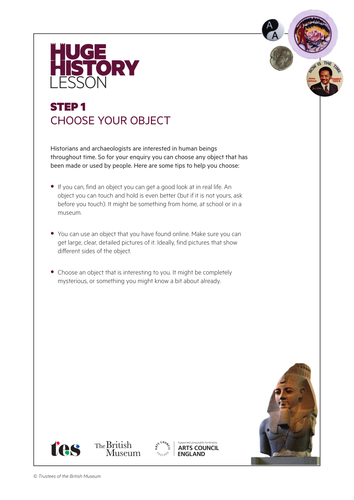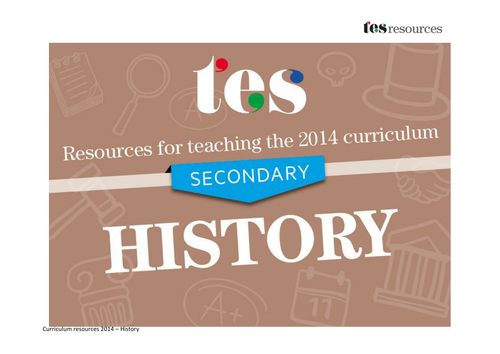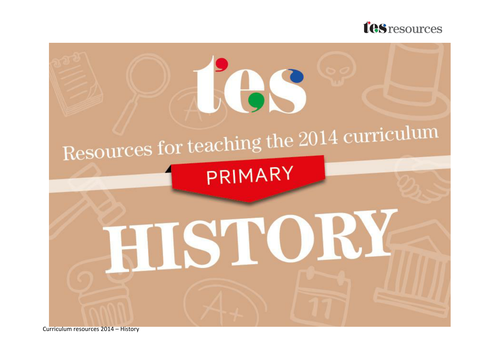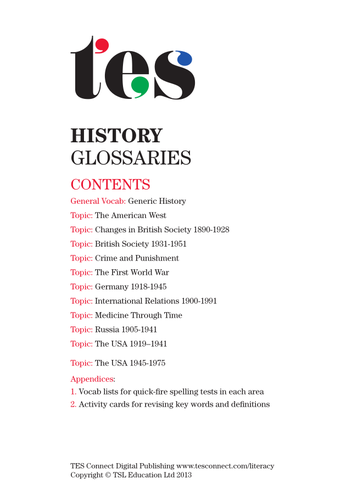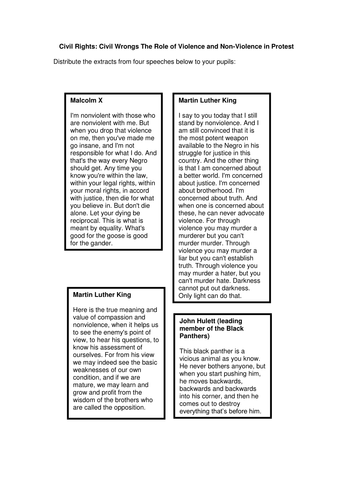97Uploads
5057k+Views
2251k+Downloads
History

Huge History Lesson: Student guide to historical enquiry
The Huge History Lesson competition (tes.com/hugehistory) has launched and we would love for you and your class to get involved. To help you get started, we’ve put together a step-by-step guide for students to explain the process behind successfully completing an historical enquiry.
For ideas on how to incorporate the competition into your teaching, see our blog posts with inspiration for primary teachers (https://www.tes.com/teaching-resources/blog/huge-history-lesson-teaching-ideas-primary) and secondary teachers (https://www.tes.com/teaching-resources/blog/huge-history-lesson-teaching-ideas-secondary).
Find more inspiration for this object-led enquiry competition via the Teaching history with 100 objects website (http://teachinghistory100.org/) and if you have any questions about the competition, or how to tackle object-led historical enquiry, do get in touch via help@tesglobal.com
Introduction for students:
The following guide will give you some ideas for investigating museum objects and using them for an historical enquiry. It will help you think like historians and archaeologists, who use clues to find out about people in the past. It is a step-by-step guide, but you do not have to answer all the questions or even follow all the steps in order. You might have your own ideas about how to find clues and use them to find out about the past.

New curriculum 2014: Secondary history
Prepare for the new academic year with this document full of resources, activities and lesson plans aligned to each objective of the secondary history curriculum for 2014.

New curriculum 2014: Primary history
Prepare for the new academic year with this document full of resources, activities and lesson plans aligned to each objective of the primary history curriculum for 2014.

History glossaries
Help students to memorise how to spell and define important key words with these glossaries and spelling lists tailored to the topics you are teaching. Covers the American west, changes in British society 1890-1928, British society 1931-1951, crime and punishment, the First World War, Germany 1918-1945, international relations 1900-1991, medicine through time, Russia 1905-1941, The USA 1919-1941 and the USA 1945-1975.

Nelson Mandela 1918 - 2013
Resources to help teachers and students to learn about Nelson Mandela, understand South Africa’s apartheid history and follow Mandela’s journey from political activist to international statesman.
The set of resources includes a video for teachers and schools to use in assembly or as a class. Using photographs of Mandela and inspirational quotes, the clip provides a guide for students to think about how Mandela’s character and actions established his position as a great world leader. As an extension Mandela’s quotes provide a point for personal reflection for students.

Non-Violence and the Civil Rights Movement
A lesson plan and student worksheet that uses quotes from key members of the Civil Rights Movements: Black Panthers, Martin Luther, Malcolm X to consider issues of justice, power and the debate about violent VS non-violent approaches in modern society, i.e. Occupy Movement, Arab Springs.

